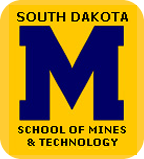 |
|
Program Outcome Assessment and Evaluation Process
Program
Outcomes are those attributes that if possessed by program graduates at the
time of their graduation should endow them with the skills needed to achieve
the Program Educational Objectives of · Successfully apply metallurgical engineering principles in their employment · Meet societal needs through science and technology · Grow professionally and personally · Serve their profession and community The Outcomes for the BS Metallurgical
Engineering Program
are as follows: The student will be able to a) Apply
Knowledge of Math, Science, and Engineering b) Design and Conduct Experiments and Analyze and
Interpret Data and Information c)
Optimally Select
Material and Design Materials Treatment and Production Processes d)
Function Well on
Teams e)
Identify,
Formulate, and Solve Engineering Problems f)
Know Professional
and Ethical Responsibilities and Practices g)
Communicate
Effectively h)
Know
Engineering's Global Societal Context i)
Engage in
Life-Long learning j)
Know Contemporary
Issues k)
Use Engineering
Techniques, Skills, and Tools Table 1 shows the relationship of the metallurgical
engineering program objectives to the program outcomes.
The outcomes are assessed using a system that
employs the following major elements: ·
A set of specifically identified instruments is used to assess each
outcome ·
Each outcome is assessed ideally by three assessment methods so as to
achieve assessment triangulation ·
Each outcome is assessed using specifically stated metrics consisting
of between two and four performance criteria each with associated specifics
that characterize specific levels of student performance. ·
The assessment of each instrument results in numerical scores recorded
on a score card To help the user find the
documents used in outcome assessment and evaluation, a summary of the salient
documents is listed here with a brief description of each. They are listed in the order in which
information flows. Each item is linked
to a sample item. is the
collection of a specific document, one per student or team, used to assess a
Program Outcome. Examples of the
specific document may be a completed homework assignment or an exam, faculty
member-completed oral presentation assessment form, or students’ standardized
exam results. is a
Microsoft Excel table document on which the Program Outcome assessment results
for one instrument are recorded. These
are typically completed by one designated faculty assessor. is a Microsoft Excel
table document for a specified Program Outcome onto which the all the Score
Card assessment results for the specified outcome are summarized and tabulated
for one calendar year. is a
Microsoft Excel document consisting of a Table and a Chart onto which all
Program Outcomes results are organized for one academic year. is a
Microsoft Excel document that shows the assessment results for all outcomes
over all years, any one outcome over time, or all outcomes for any selected
year. is a
Microsoft Excel worksheet onto which a designated Met Eng faculty member
documents his critical review of a selected Program Outcome for a specified
academic year and includes actions needed. is a Microsoft
Excel worksheet that contains a complete sequential history (all years) of
the evaluations, actions, and results for each outcome. is a Microsoft
Excel worksheet completed in January that contains a complete summary for
all outcome evaluations and results for the preceding year and actions
for
the current
year. |
||||||||||||||||||||||||||||||||||||||||||||||||||||||||||||||||||||||||||||||||||||||||||||